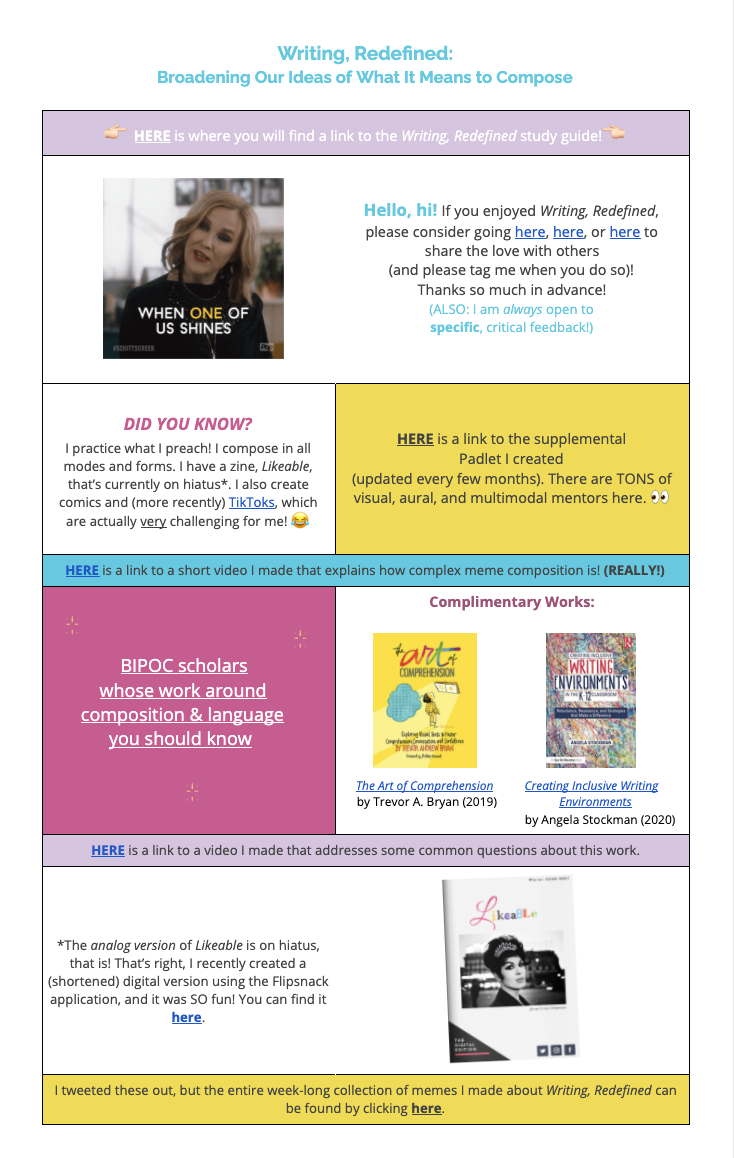
On Labor, Compensation, and Ding Dongs
Thinking and talking about compensation, in general, is challenging. Fair compensation is not merely about the completion of a simple transaction (i.e., a sum of cash given to someone for the work they did). As many of us are all too aware, equitable pay is all tangled up in things like race, gender, class, education, documentation status, dis/ability, physical appearance, and on and on and on.

A Well-Balanced Diet (Reposted from the CCIRA Blog)
I am often asked by colleagues how to help their students break out of comfortable habits as readers and writers in order to facilitate new discoveries, provide greater challenge, and broaden their horizons. As someone who enjoys the security and steadfastness of reading the same kinds of texts (memoir, true crime, YA) and writing within a limited pool of forms and genres (memoir, essays, comics), I understand both students’ desire to stick with what’s “working” for them as well as teachers’ desire–and often, the outside pressure–to nudge students toward a more “well-rounded” reading and writing identity.

Expecting Too Much (and Too Little?) of Literacy Teachers (Reposted from My Medium Blog)
I was reading a professional text fairly recently that, in many ways, moved me to nod my head so frequently as I read that I resembled one of those bobble head turtles that you find at craft fairs and flea markets. There was so much I loved about what the authors had to say about our collective practice as teachers. But the deeper I got into the book, the less I nodded my head and the more I started to cringe at the expectations these authors had laid out for classroom teachers — at the range and the number of teaching practices they insisted were essential cogs in the instructional literacy wheel. This wasn’t the first time I’d felt this way; as a matter of fact, I often develop that same cringe-y feeling when reading professional texts — particularly those that, in recent years, have become the most popular or sought-after among literacy educators.

Why Race? (Reposted from My Medium blog)
In my work as an aspiring co-conspirator helping to “call in” my fellow White* folks and explicitly supporting equity and justice efforts within my community and beyond, I am often asked in conversations–most often by fellow White folks–why I (frequently) choose to “focus on race.” Why not draw attention to all kinds of oppression? they ask. We don’t have those problems here, they often argue, “those problems” being a semantic proxy for the kinds of interpersonal conflicts that make it into national headlines or viral TikToks.






